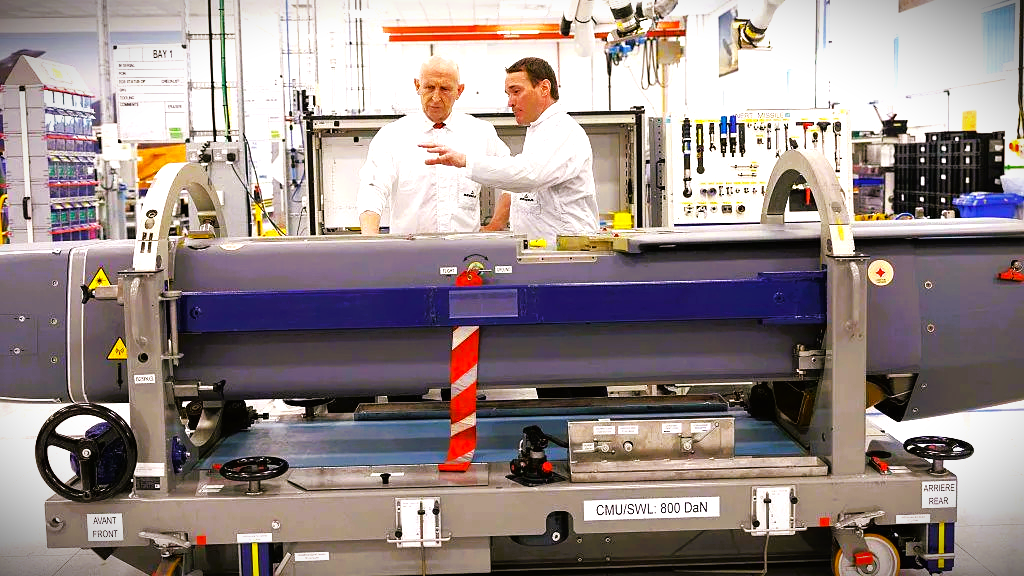The UK government has announced a landmark £1.5 billion investment in the construction of at least six new weapons and explosives factories, marking a significant strategic shift in its defence posture and industrial policy. Framed as a response to growing global instability and lessons drawn from the war in Ukraine, the initiative signals a new era of “always-on” munitions production designed to bolster both national security and economic resilience.
Defence Secretary John Healey, unveiling the initiative ahead of the upcoming Strategic Defence Review (SDR), said the investment aims to “strengthen the UK’s industrial base to better deter our adversaries and make the UK secure at home and strong abroad.”
From Stockpile Shortfalls to Industrial Readiness
The announcement follows mounting concern among senior defence officials over the UK’s limited weapons stockpiles. Simulations have indicated that British forces could deplete their ammunition reserves within days of a high-intensity conflict. These vulnerabilities, laid bare by Russia’s full-scale invasion of Ukraine, have accelerated calls for a robust domestic manufacturing base.
The new factories will be built to support the rapid production of a wide range of munitions, including long-range missiles, drones, and artillery shells. Over the coming years, the Ministry of Defence (MoD) will procure more than 7,000 UK-built long-range weapons, part of a wider ambition to ensure Britain’s defence supply chain is both resilient and responsive.
According to the MoD, the fresh funding will push total UK munitions spending to £6 billion over the course of the current Parliament.
Economic Strategy Meets Security Imperative
The government has positioned the investment as a dual-purpose initiative enhancing the UK’s military capabilities while revitalising its industrial base. Approximately 1,800 skilled jobs are expected to be created directly by the programme, with further employment generated through supply chain and regional manufacturing expansion.
Chancellor Rachel Reeves called the decision “evidence that a strong economy and strong defence go hand in hand,” adding that the plan would deliver “security for working people and good jobs across the country.”
The emphasis on domestic production comes amid rising global demand for explosives and propellants, which has placed strain on international supply chains and exposed the risks of external dependency.
Political Divide Over Pace and Prioritisation
While the Conservative opposition has welcomed the investment, it has raised questions about the pace of implementation. Shadow Defence Secretary James Cartlidge criticised Labour for what he called a recent “freeze” on military procurement, warning that urgent defence needs had been deferred during a critical period of rearmament.
“We welcome investment in new munitions factories, but we don’t know when they will be ready, only that these orders should have been placed months ago,” Cartlidge said. He called for “greater ambition” in both the speed and scale of Britain’s rearmament strategy.
Defence analysts note that while long-term investments in manufacturing are vital, they will not address short-term readiness gaps. Production timelines for advanced systems such as NLAW anti-tank weapons and Storm Shadow cruise missiles can span years, even with accelerated contracts.
Ukraine as Catalyst for Strategic Overhaul
The backdrop to the announcement is unmistakably the ongoing war in Ukraine, where Western military support has highlighted the strain placed on existing arsenals and production capacities. British-supplied weapons have played a pivotal role in Ukraine’s defence, but replenishing the UK’s own stocks has proven challenging.
Former British Army chief General Sir Patrick Sanders recently warned that the country’s diminished artillery and missile supplies should “put hairs on the back of your neck.” His remarks echoed concerns long expressed by NATO commanders, including former US Army Europe head General Ben Hodges, who described the UK’s inventory as alarmingly insufficient in a 2021 war simulation.
Strategic Realignment in a Volatile World
Looking ahead, the government plans to increase defence spending to 3% of GDP by 2034 a significant step up from current levels. This industrial expansion forms a cornerstone of that vision, reflecting an evolving understanding of deterrence not just as a matter of troop numbers or technology, but of enduring logistical and manufacturing strength.
“The hard-fought lessons from Putin’s illegal invasion of Ukraine show that military strength depends on industrial readiness,” Healey said. “This is about creating a foundation of self-sufficiency, one that protects Britain’s security and sustains its global responsibilities.”
As geopolitical tensions escalate and defence commitments deepen, Britain’s new investment marks more than just a fiscal decision, it signals a decisive pivot toward long-term strategic autonomy.




